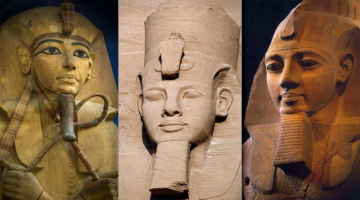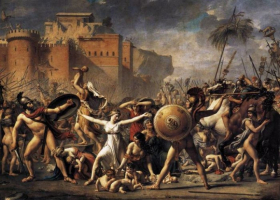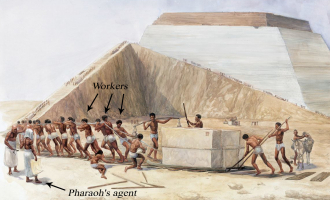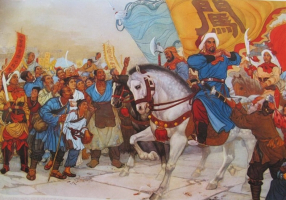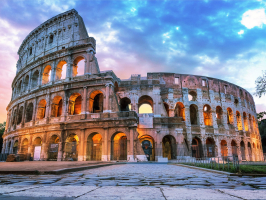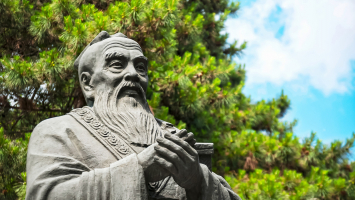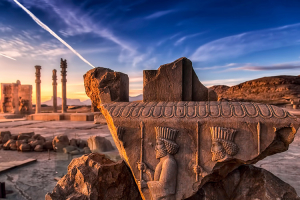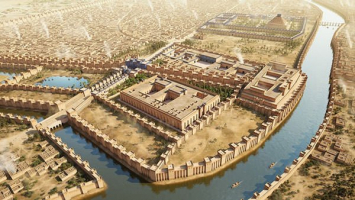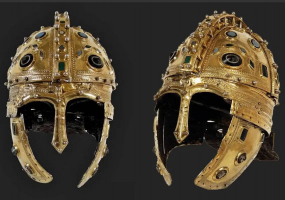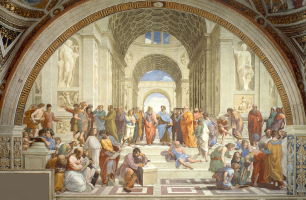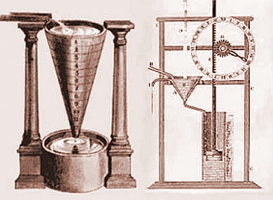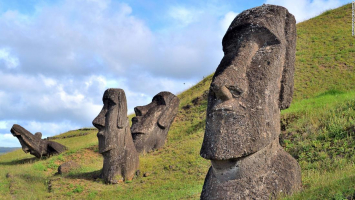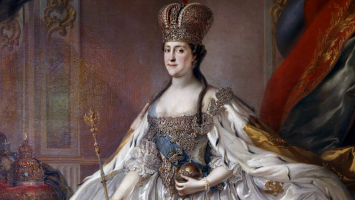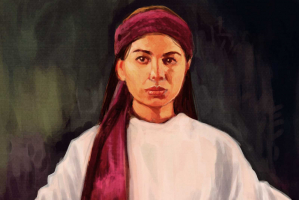Top 11 Most Important People in Ancient Greece
One of the greatest civilizations in human history, Ancient Greece had a significant influence on other cultures that developed after its collapse. The ... read more...significance of these individuals cannot be overestimated, from developing the earliest works of literature to coming up with major events like the Olympics Games to ground-breaking ideas and experiments in mathematics and science. Here is a list of the top most important people in ancient Greece.
-
Under King Phillip II, who was replaced by his son King Alexander the Great at the young age of 20, Macedonia steadily established itself as the most prominent military force on the European continent. The most feared army in history was led by Alexander the Great, who used it to carve out a sizable empire for himself. He overthrew the Persian Empire before advancing into Egypt and India to establish himself as the undisputed ruler of monarchs. He was ultimately destroyed, leaving a legacy of tyranny, divinity, and bravery.
He received education from Aristotle in politics, biology, philosophy, and medicine. Along with his boldness, his talent was unmatched. There was no one in the realm who could have tamed the horse his father brought in, a horse by the name of Bucephalus. Only Alexander, with his aptitude for deduction, was able to saddle it and ride it about. His youthful pranks gave the impression that he was invincible.
Alexander left Macedonia in 334 BC with a 400,00-man army. He was intent on claiming all of Persia, which he believed to be his rightful inheritance from the Gods. While Alexander launched an attack from the center, his warriors divided the Persian forces. After the acquisition of Persia, he was welcomed as the King of Asia. Before taking over India, he seized Babylon and Persepolis as well. When he started to pursue the entire continent, he succumbed to the desert's heat, developed an incurable illness, and passed very shortly after. These are some of the factors that led Alexander of Macedonia to become Alexander the Great.
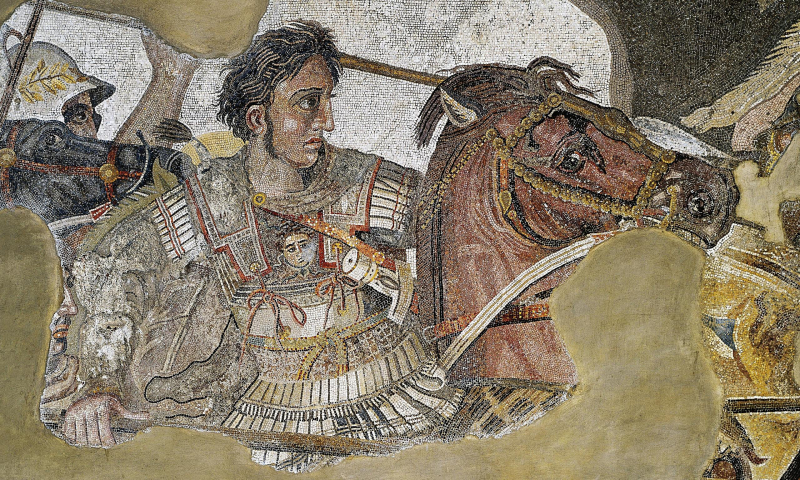
Phôt: Wikipedia - Alexander the Great 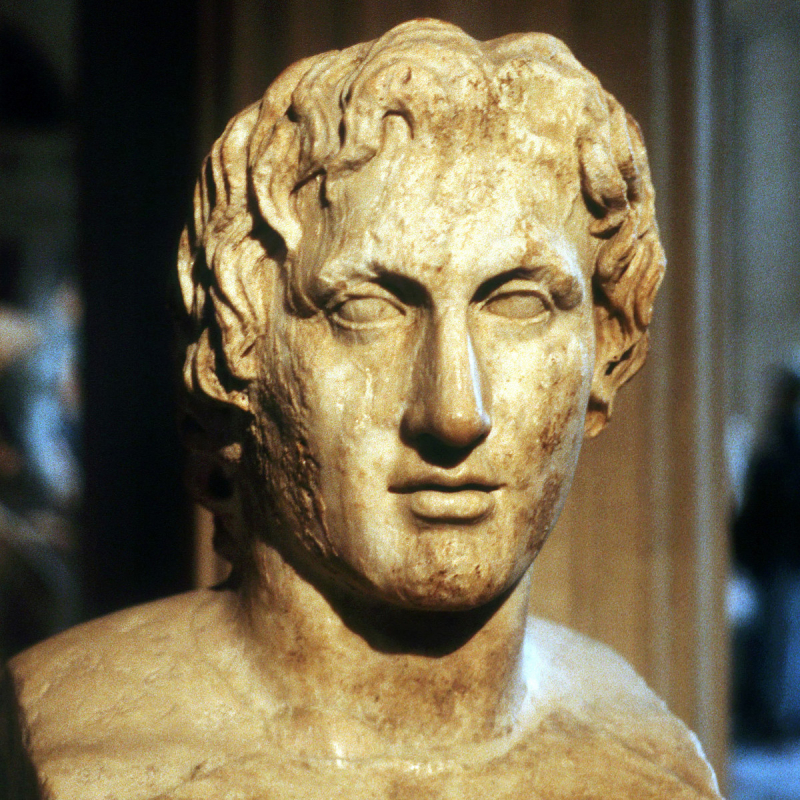
Photo: bio. Biography.com - Alexander the Great -
Aristotle was referred to as "the master" or "the philosopher." His parents, who work in the medical industry, raised him. King Philip hired him to instruct his son, Alexander the Great, as word of his fame had spread widely. Then Aristotle left for Athens where he worked briefly with Plato before striking off on his own.
He started the Lyceum, a tiny college. The "lycees," French secondary schools, are named after this endeavor. He enjoyed moving around when lecturing and having discussions. His adherents are "peripatetics," or "wanderers."
Lecture notes from his various books. Aristotle was intrigued by how many things operated and questioned how everything in the world functioned. He saw philosophy as the study of sensible knowledge. There are over 200 manuscripts in his works. Only 31 have stood the test of time, though. His novels were used as instructional tools in his school rather than being regarded as literary masterpieces. His writings contain four different perceptual systems: Organon, Metaphysics, Rhetoric, and Poetics, which when combined offer a comprehensive perspective to life's big concerns.
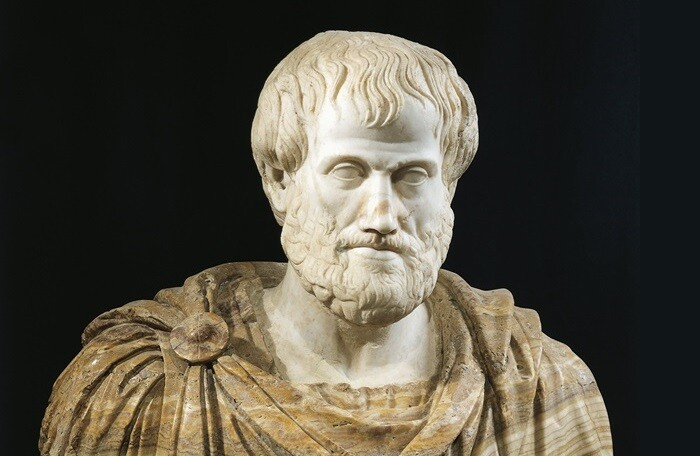
Photo: VietnamFinance - Aristotle 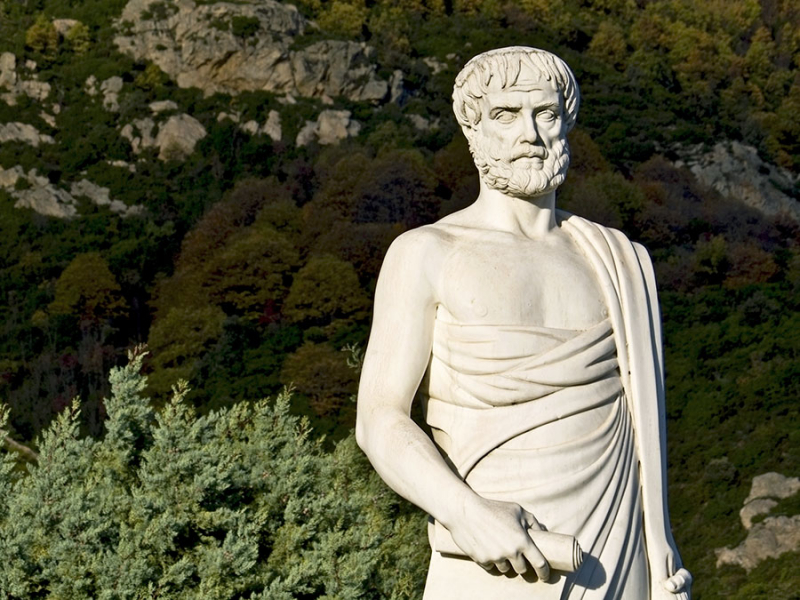
Photo: FoxStudy- Aristotle -
Possibly the greatest philosopher of all time was Socrates. His theories not only altered the course of history, but also served as the inspiration for what is now known as Western philosophy.
Socrates was born in or around 469 BC and lived in Athens, Greece, for the most of his life. Before dedicating his life to being a philosopher, he served in the military and worked as a stonecutter. He never authored a book, which is a less well-known truth. We have learned everything about him from the writings of his contemporaries, most notably his famous student Plato.
According to a wise lady named Diotama, who is mentioned in one of Socrates' works, love is defined as the pursuit of things, beauty, or children. He turned to being a philosophy enthusiast as a result. Despite being the most renowned philosopher and the most educated person to have ever lived, he thinks he knows nothing. He asserted that genuine knowledge consisted of understanding one knows nothing. He proposed a method of incremental inquiry known as the Socratic Method from this philosophical perspective, which is arguably Socrates' most important contribution to the academic community. Even now, it is a topic of critical debate in classrooms of law and English.
Socrates was so captivating that he caused intellectuals and politicians to reconsider their beliefs. Additionally, he passionately criticized democracy. It cleared the door for other political opponents including Martin Luther King, Jr. Socrates was a wonderful teacher with cutting-edge philosophical ideas and conceptions, yet the sole source of his proof is the works of Plato.
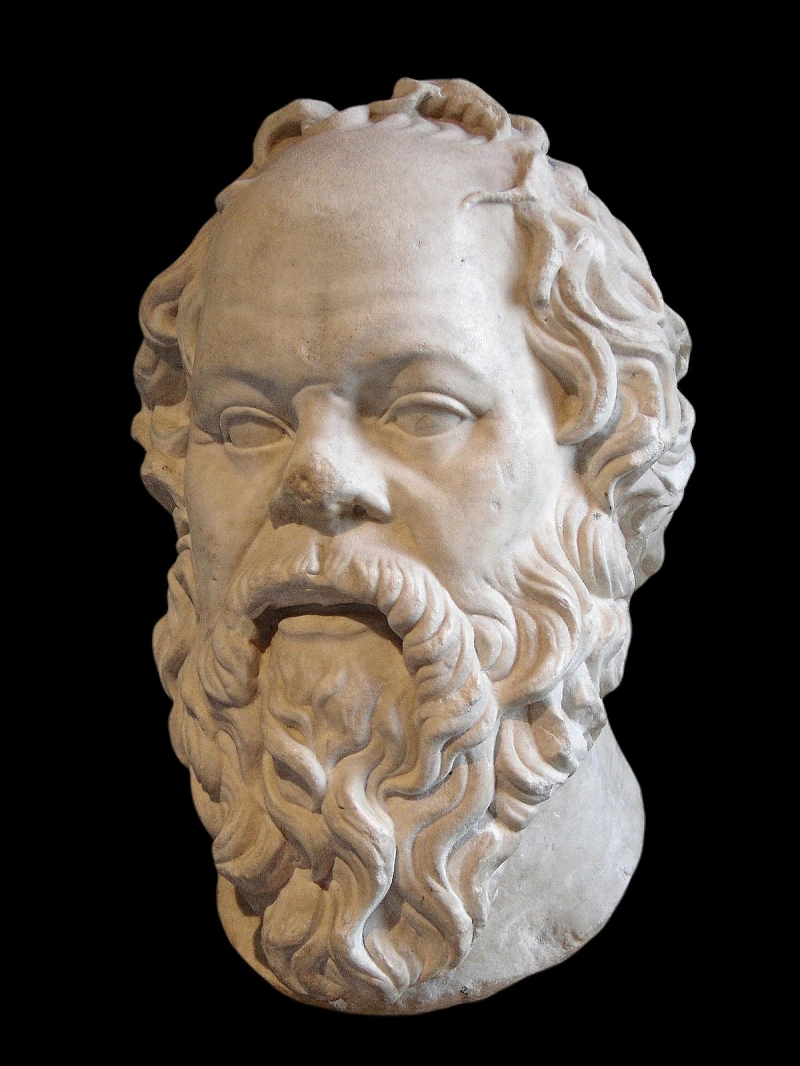
Photo: Wikipedia - Socrates 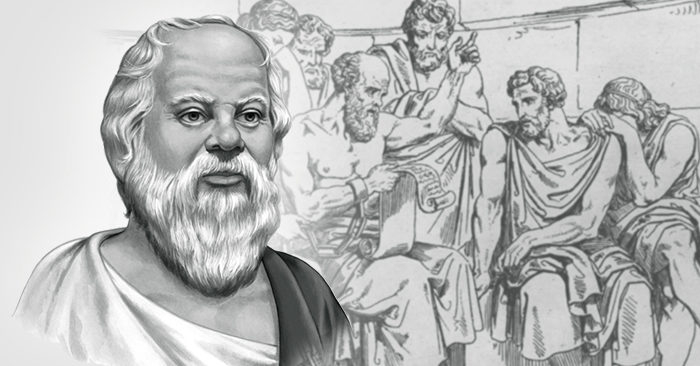
Photo: DKN News -
Plato grew up in a prosperous household in the city where he was born. Despite his worldly belongings, he renounced them all because he was adamant that he should spend the rest of his life assisting others in achieving a condition known as Eudaimonia, or fulfillment.
The profundity of Plato's writings may be seen in his 36 dialogues, which are all masterfully written scripts for philosophical debates including The Republic, The Symposium, The Laws, The Meno, and The Apology. Plato had several concepts, many of which were geared at enhancing happiness.
He believed that the planet and its inhabitants were divided into three groups. He held that everyone of us is born with the capacity for reason, spirit, and hunger, and that we should all struggle to develop these qualities so that we might become the ruling class, the warriors, and the laborers.
He is also well-known for the allegory of the cave that he is credited with. According to legends, he founded the Academy, a school where even Aristotle went to learn. He is the philosophical idealism's founding figure.
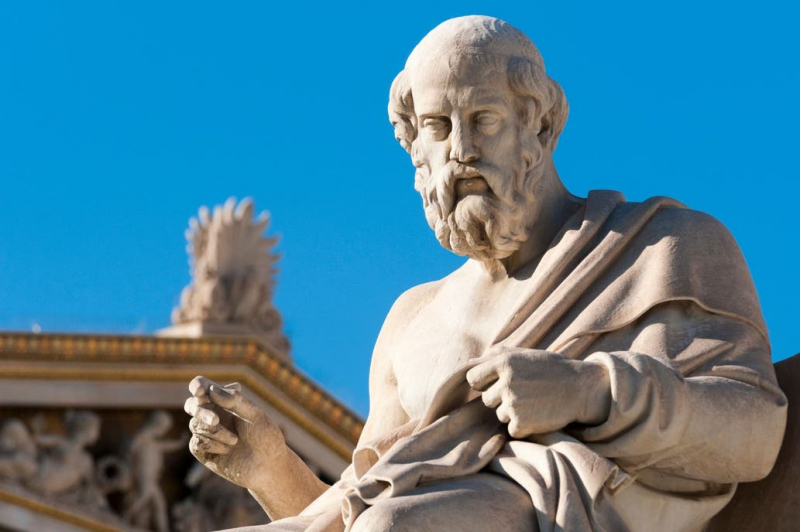
Photo: PLO - Plato 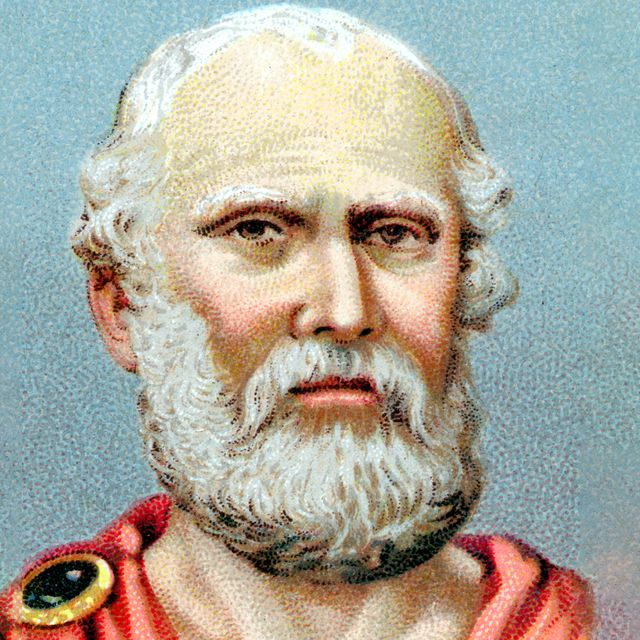
Photo: Encyclopedia Britannica - Plato -
Archimedes is one of the most important people in ancient Greece of all times. Because he had just discovered the concept of buoyancy while having a bath, Archimedes is reported to have rushed naked through the streets of Syracuse while shouting, "Eureka! Eureka!"
Even in today's society, he enjoys the same standing and respect as Newton and Einstein. In the Greek period itself, he was referred to as the "wise one" or "the master" and is credited with some theoretical formulations that revolutionized the way things worked and are still used today.
His theories include the "Archimedes Tomb," which shows that a sphere's volume and surface are equal to a cylinder's in two-thirds. When Cicero resurrected it many years later, this well-established thesis had long since vanished from memory. He is most known for using the winning phrase "Eureka" after discovering Archimedes' Principle.He is also credited with discovering the function of levers, the Archimedes Claw, solstice observations, hydrostatics, and other things. Although his work wasn't well received in antiquity, the authenticity and significance of his life and deeds had a profound influence on subsequent generations.
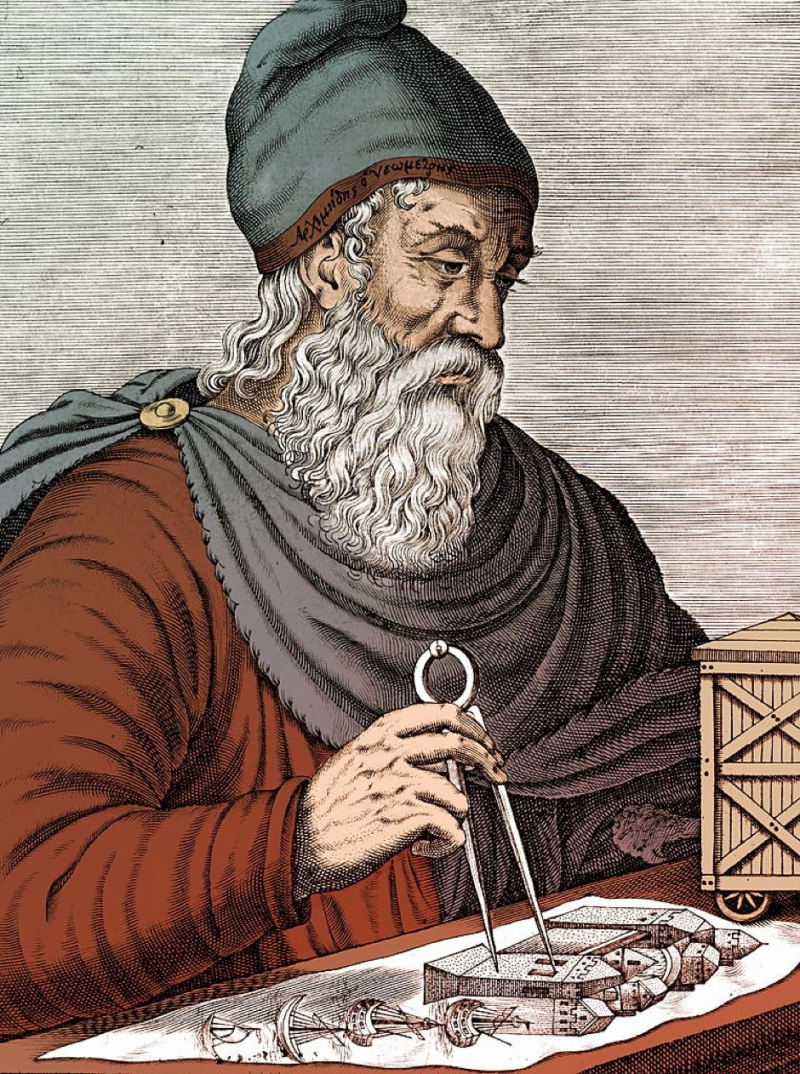
Photo: BBC Science Focus Magazine - Archimedes: inventor of war machines and calculus (almost) 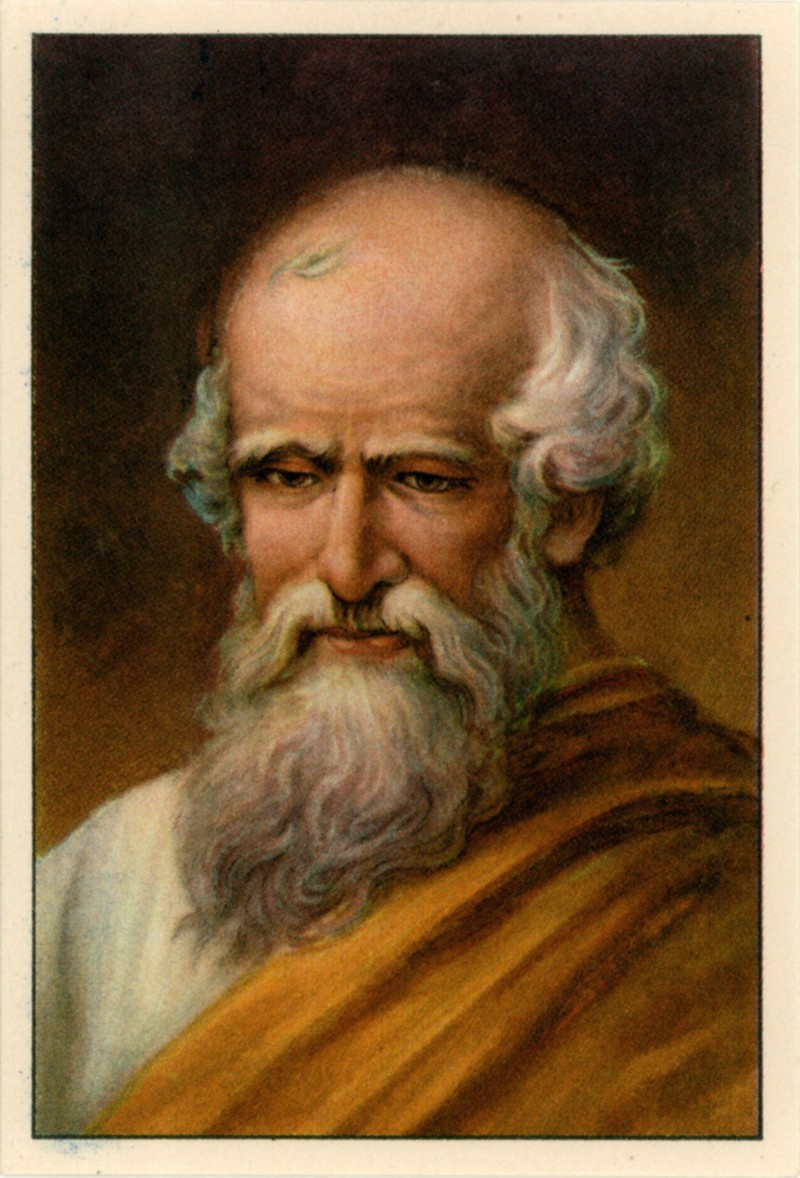
Photo: Vietnam Daily -Archimedes -
Pythagoras, who is frequently referred to as the first of the Greek philosophers, was born around 570 BC on the island of Samos, which is now in modern-day Turkey. According to legend, he began his education studying under some of the best astronomers and mathematicians of his day. He learned to play the lyre at this period, absorbed their hidden lessons, and was able to memorize entire Homeric epics.
He later traveled to the few historic hubs of thought and wisdom and armoured himself with knowledge from the most potent modern civilizations. His impact was so great that more than 300 others joined him on the way to Kroton and established a crazy cult, adoring him as an incarnation of the god Apollo.
He went on to develop a large number of mathematical and philosophical ideas along with his sect. They offered the idea that the earth revolved around the sun about 2,000 years before others like Galileo and Copernicus would prove it. They also proved the Pythagorean theorem for determining the area of a triangle. For obvious reasons, such actions infuriated many Greeks, and an enraged crowd murdered him by setting him on fire.
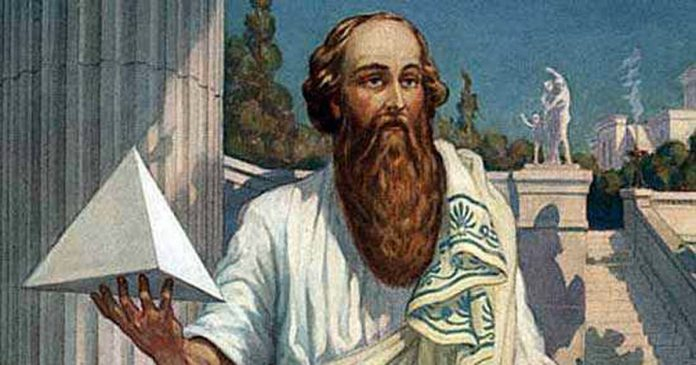
Photo: BITEXEDU 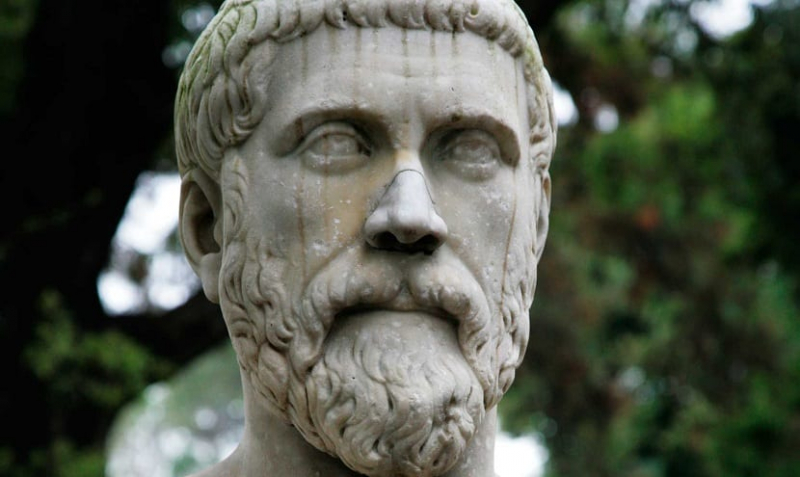
Photo: www.meteorologiaenred.com - Pythagoras -
The Iliad and The Odyssey were written by Homer, who is often regarded as the greatest epic poet in history. The history of literature has been greatly influenced by Homer's epics.
It is challenging to date his writings because they were passed down orally from generation to generation, but "The Iliad" and "The Odyssey" are thought to date to the 8th century BC. The Odyssey centers on King Odysseus' journey to Ithaca, while The Iliad narrates the narrative of the first Trojan War. His epics not only expanded the literary canon, but they also helped to establish Greek society and education from the Classical Period through the Roman Empire.
It is impossible to say if Homer lived or whether the Trojan War ever occurred. However, because the Greeks were finally unified to openly fight the Trojan War, the poems revealed a surge of newly discovered cultural identity among the Greeks.
Despite differences among Greece's many city-states, the reciting of the poetry gave the populace a strong sense of unity and belonging. His writings were much more than just epics; Greeks knew the majority of them from memory, and beyond the confines of the page, the words of the stories served as a type of moral and practical instruction manual for them.
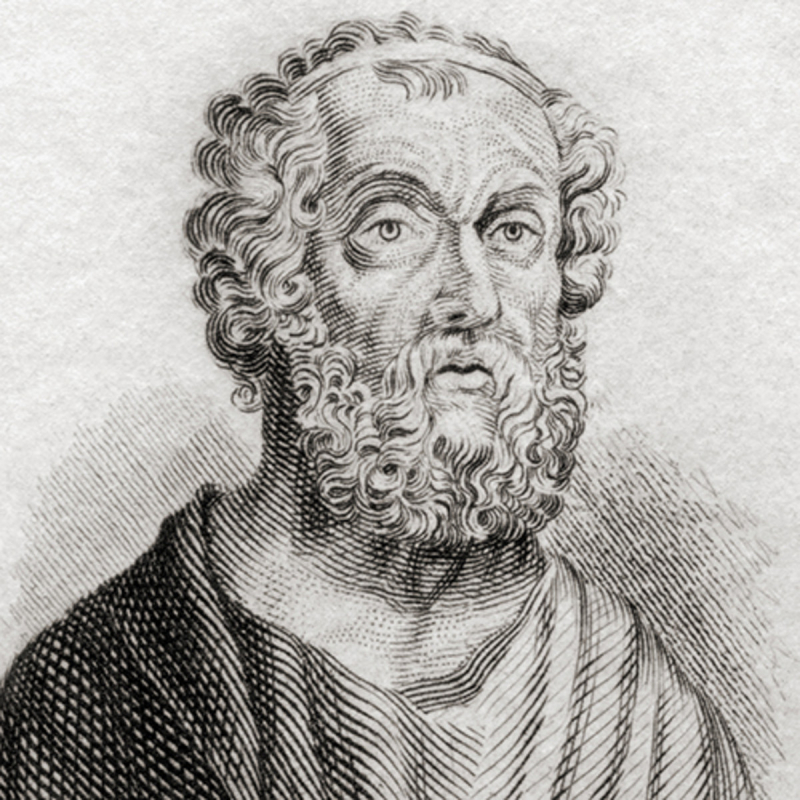
Photo: bio. Biography.com - Homer 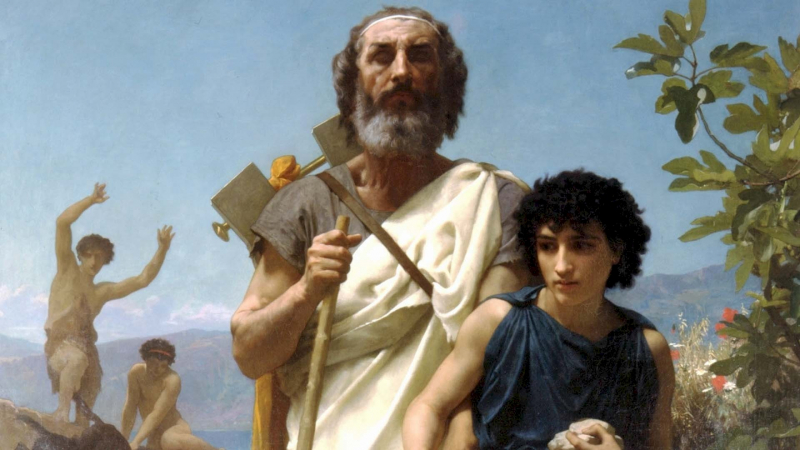
Photo: Bad Ancient - Homer -
Euclid of Alexandria, one of the oldest mathematicians, is sometimes referred to as the father of geometry. Very little is known about the early records of Euclid's life, and most of the records on his life have been lost to the passage of time. But the ancient Greek philosopher Proclus made reference to him in a work titled The Summary of Greek Mathematicians. This suggests that at the time of Ptolemy I, Euclid was a prominent and active mathematician working in the library of Alexandria. This places him far earlier than Archimedes, another well-known Greek.
Although hardly much is known about his life, his contributions to mathematics and the history of geometry in general have had a significant influence. His most famous book, The Elements, was instrumental in developing the fundamental ideas of geometry. His famous work is still used today as a math textbook and is second only to the Bible in terms of the number of copies published. It was originally composed as a collection of 13 volumes. His compilation of definitions, postulates, premises, and proofs served as the foundation for contemporary mathematics as we know it today.
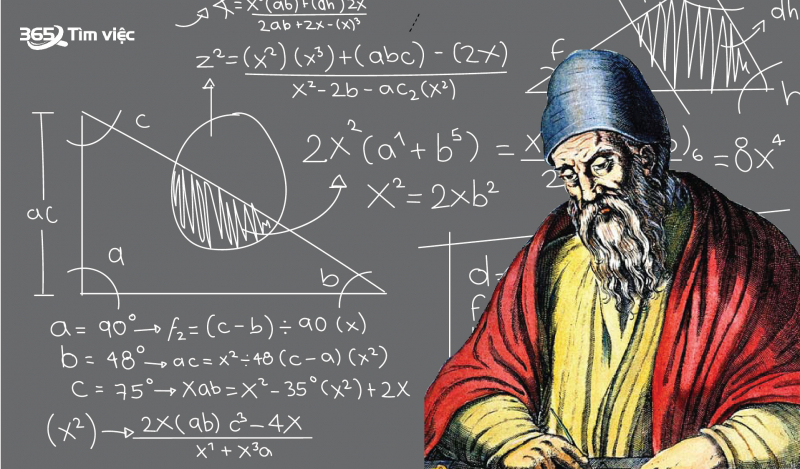
Photo: Timviec365.vn - Euclid 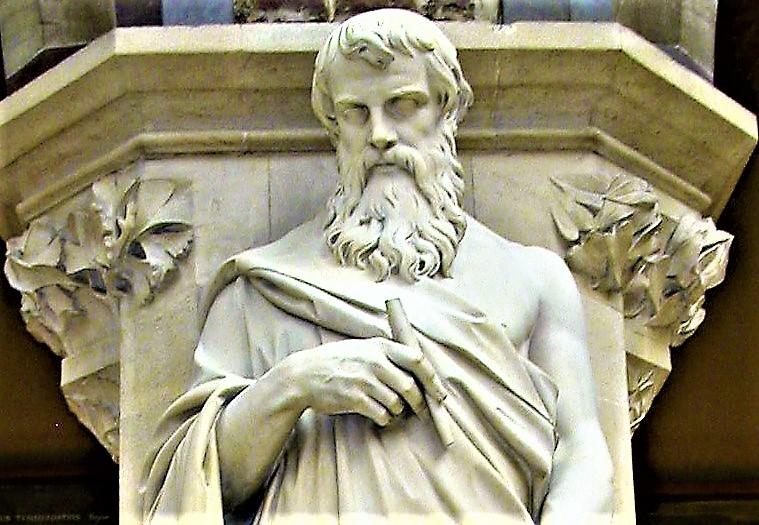
Photo: Euston96 - Euclid -
The legendary Spartan king Leonidas I is known for his bravery during the Battle of Thermopylae. Every Spartan citizen at the period was prepared for combat, and martial practice practically consumed every waking moment from childhood. As a result, when the Persians pounded on the doors of ancient Greece, Leonidas was destined for greatness. One of King Anaxandridas II of Sparta's sons, Leonidas, was rumored to be Heracles (more often known as Hercules)' ancestor and to have inherited much of his strength and ability.
With his outstanding leadership at the Battle of Thermopylae against the power of the Persians, Leonidas made a lasting impression on the course of history. Down the writings of the eminent Greek historian Herodotus, the legend of his incredible final struggle against all odds has been passed down through the decades. He related the tale of how a two million-man Persian army was resisted for three days by 300 Spartans and 700 Thespians at Sparta. The number of Persians has now been revised to 250,000, although this does not lessen the valor displayed by Leonidas and his soldiers in defending the narrow pass of Thermopylae. His tale is still cited today to demonstrate how even the smallest troops can be made to perform to their fullest ability via experience, training, and the strategic use of terrain.
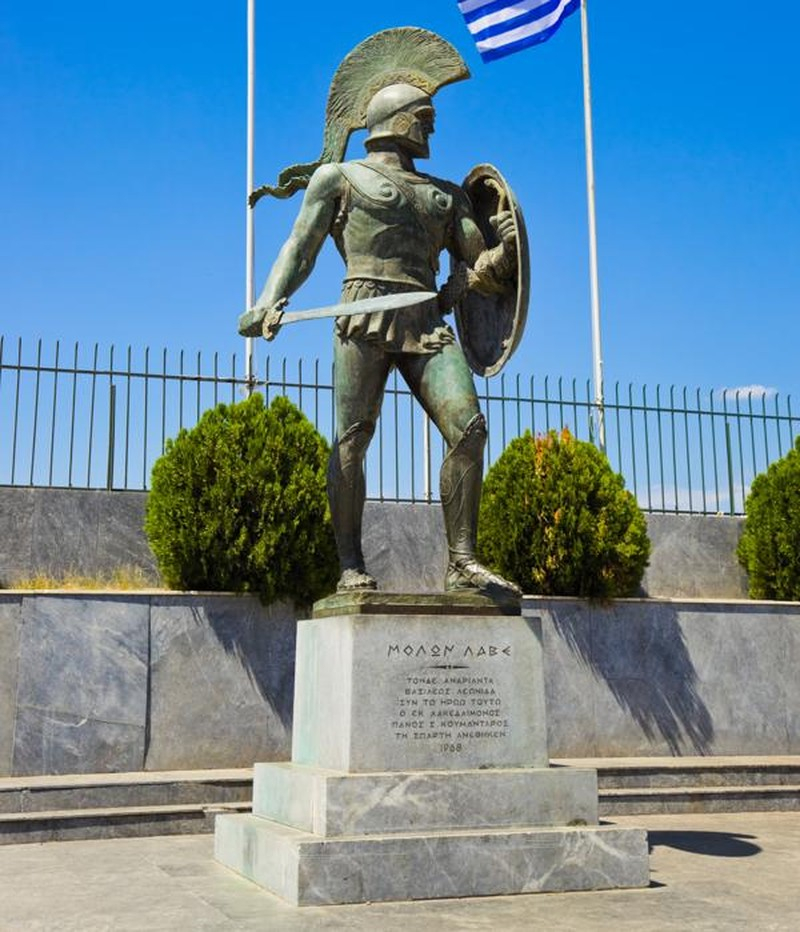
Photo: Famousbio - Leonidas I 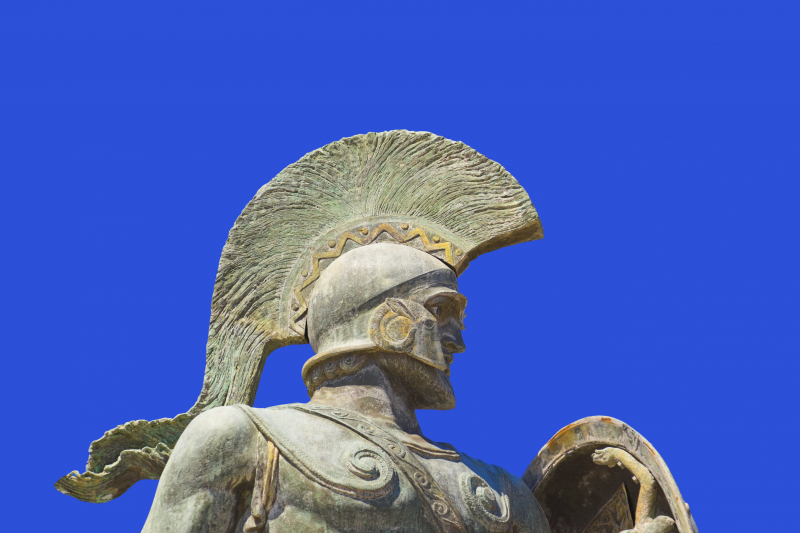
Photo: Greek Boston - Leonidas I -
One of the most important people in ancient Greece, Hippocrates was unquestionably one of the first and most influential contributors in the development of medicine. He is sometimes referred to as the father of Western medicine because of his extraordinary contributions to early medical discoveries that served to establish standards for modern medicine. He developed the Hippocratic School of Medicine, which eventually led to the separation of medicine into its own discipline and transformed the way medicine was practiced in ancient Greece.
His actions helped medicine achieve the standing it does now, distinguishing it from other disciplines like philosophy and theurgy. He is also credited with being the first to say unequivocally that illnesses, contrary to popular belief in ancient times, were brought on by natural reasons rather than superstition or the wrath of the gods. Hippocrates had a significant influence on medicine, from the earliest reports of serious illnesses including lung cancer, cyanotic heart disease, and clubbed fingers (also known as Hippocratic fingers) through the ultimate professionalization of medicine.
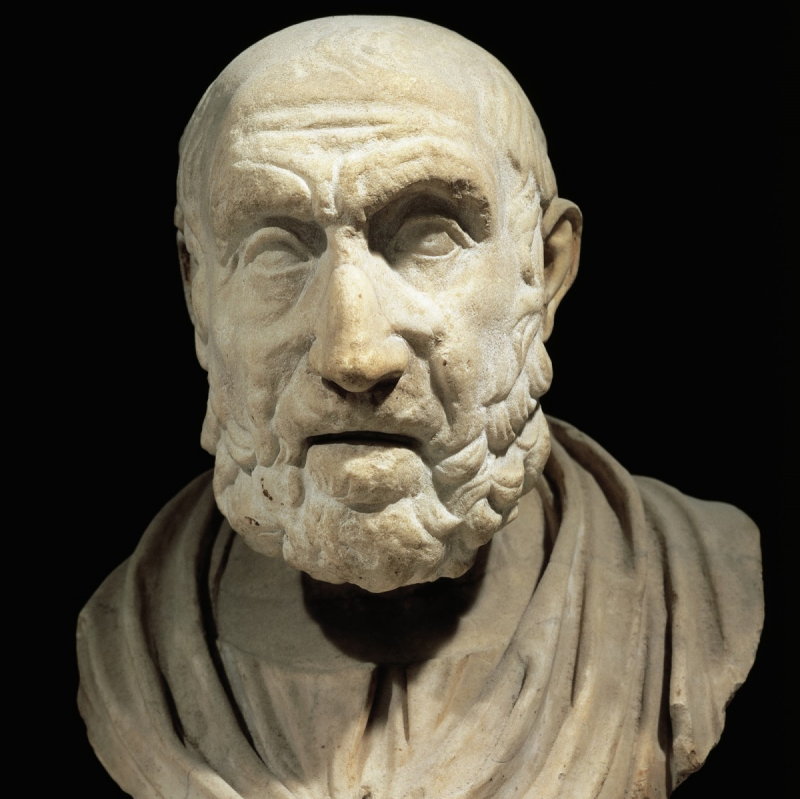
Photo: bio. Biography.com - Hippocrates 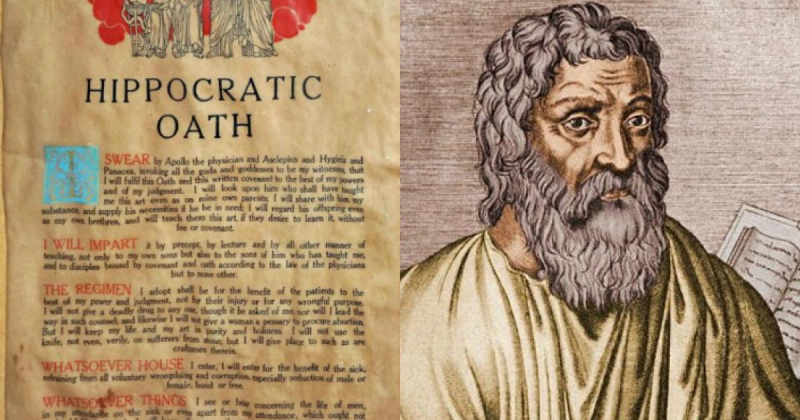
Photo: Everything You Know - Online Encyclopedia Hippocrates - The Famous Father of Medicine and the Thousand Years of Oath -
During Athens' Golden Age, notably between the Persian and Peloponnesian wars, Pericles was a well-known and respected statesman, orator, and general. Pericles had such a significant impact on Athenian culture that Thucydides, a historian writing at the time, referred to him as "the first citizen of Athens." During the first two years of the Peloponnesian War, Pericles led his people and transformed the Delian League into an Athenian kingdom. The "Age of Pericles" refers to the time when he was Athens' leader, which roughly spanned 461 to 429 BC, although it can also refer to events that occurred as early as the Persian Wars or as late as the following century.
One major factor in Athens' position as the educational and cultural hub of the ancient world is Pericles' promotion of the arts and literature. He began an ambitious undertaking that produced the most of the Acropolis's remaining buildings (including the Parthenon). With this endeavor, the city was enhanced, its splendor was displayed, and locals were given jobs. Additionally, Pericles promoted Athenian democracy to the point where his detractors label him a populist.
The literary and artistic productions of the Golden Age of Athens, the majority of which are still in existence, are Pericles' most notable legacy. The Acropolis is a representation of contemporary Athens even though it is in ruins.
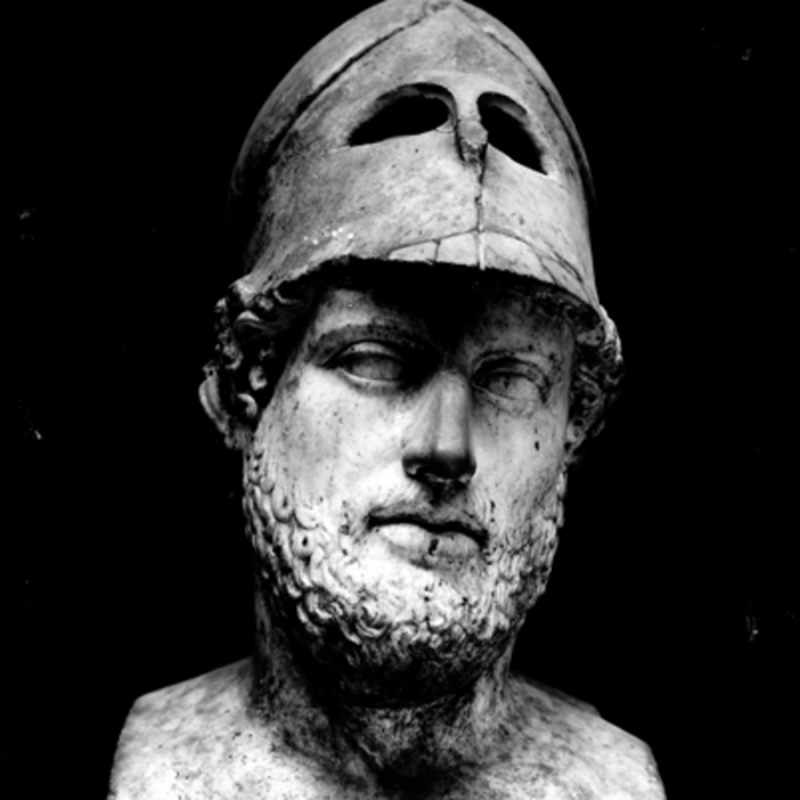
Photo: Blendspace 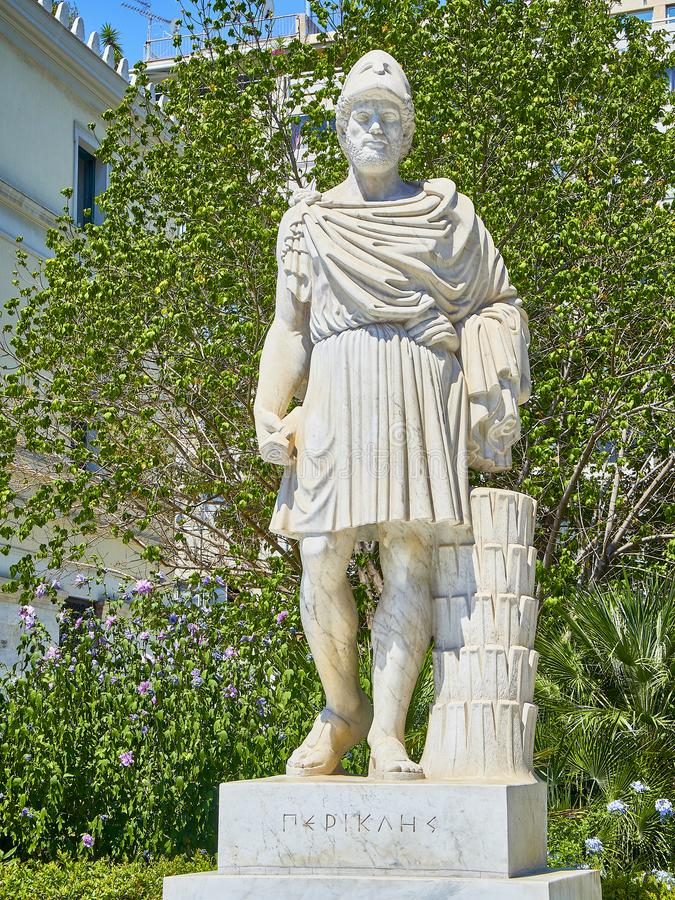
Photo: Dreamstime.com - Statue of Pericles at the Athinas Street of Athens













